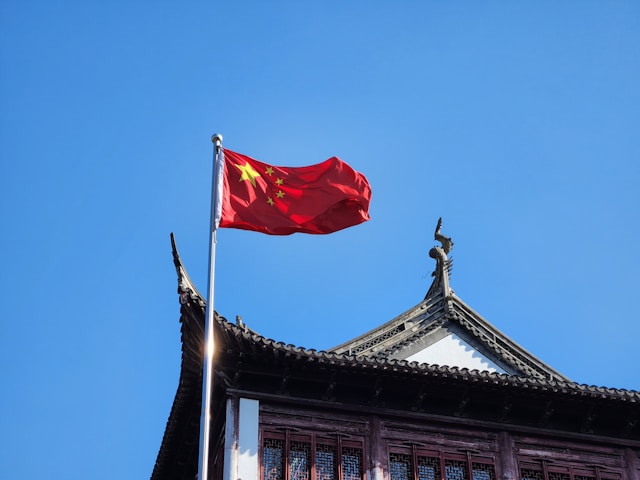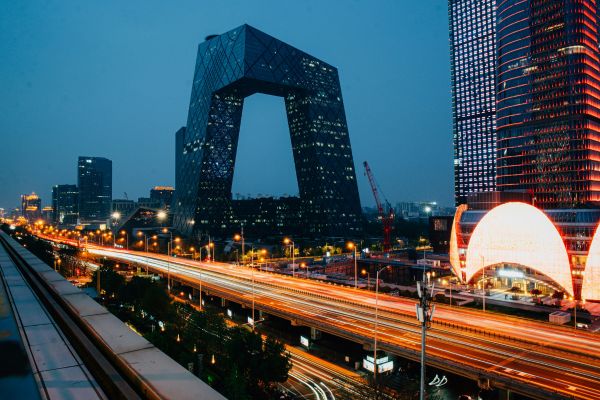
The Shanghai Financial Court, the first court in China dedicated to hearing finance-related civil and administrative cases, was established on 20 August 2018.
The Shanghai Financial Court is an intermediate court, and its appellate court is the Shanghai High People's Court. It is the higher court of primary people’s courts at all districts in Shanghai in the trial of financial disputes. Chinese courts are divided into four levels, the Supreme People's Court (SPC), high people's courts, intermediate people's courts, and primary people's courts.
1. What cases are heard in the Shanghai Financial Court?
The “Provisions of the Supreme People's Court on the Jurisdiction of the Shanghai Financial Court” (最高人民法院关于上海金融法院案件管辖的规定) promulgated on 31 July 2018 clarified the cases to be heard by the Shanghai Financial Court.
Firstly, the Shanghai Financial Court mainly hears finance-related civil litigation cases, such as disputes over securities, futures, trusts, insurance, financial lending, private equity funds, online payments, P2P lending, and online equity-based crowd-funding.
Secondly, the Shanghai Financial Court handles bankruptcy cases of financial institutions, reviews finance-related arbitral awards, and recognizes and enforces court rulings and arbitral awards on foreign financial disputes.
Thirdly, the Shanghai Financial Court hears the finance-related administrative cases where financial regulators within Shanghai Municipality are listed as the defendants, such as the Shanghai Securities Regulatory Bureau.
Fourthly, the Shanghai Financial Court hears the cases where financial market infrastructure entities, with the domicile located in Shanghai, are listed as defendants, such as Shanghai Stock Exchange, Shanghai Futures Exchange, and China Financial Futures Exchange.
2. Why the Shanghai Financial Court is established?
(1) The Shanghai Financial Court will be more professional in hearing financial cases
Prior to the establishment of the Shanghai Financial Court, various courts in Shanghai tried some financial cases, but each court heard a relatively limited number of financial cases. Therefore, on the one hand, judges are not exposed to sufficient financial cases, and their experience and abilities cannot be improved. On the other hand, judges who hear such cases are distributed in various courts and cannot exchange their ideas frequently.
The SPC believes that after centralizing all financial cases within Shanghai Municipality into the jurisdiction of the Shanghai Financial Court, the judges will improve rapidly and become more professional.
It is worth noting that the establishment of specialized courts for certain types of cases is one common measure of the SPC's judicial reforms, which allows specialized courts to professionally hear specific cases. For this purpose, the SPC has also established several intellectual property courts and Internet courts throughout China.
(2) The huge financial risks that China is facing pose challenges to Chinese courts
In August 2017, the SPC issued the “Several Opinions on Further Strengthening Financial Trials” (关于进一步加强金融审判工作的若干意见). This document requires local courts to guard against and control financial risks in financial cases.
Chinese courts believe that it is far from enough to rely solely on financial regulators to manage financial markets. Therefore, it is necessary for the judiciary to participate in safeguarding the rights of investors and consumers, supervising the enforcement of financial regulatory authorities, and cracking down on financial crimes against investors and consumers.
(3) Shanghai's courts have rich experience in hearing financial cases
Shanghai is China's financial center, and consequently, there are a great number of financial disputes. From 2013 to 2017, the average annual growth rate of financial disputes handled by various courts in Shanghai was 51%. The number of first-instance financial cases concluded in the past five years totaled 478,000. Some major cases are included, such as China's first case of cross-market financial derivatives insider trading, namely Everbright Fat Finger trade; the first case of securities investor litigation supported by the China Securities Investor Services Center.
3. The influence of the Shanghai Financial Court
The Shanghai Financial Court was established under the arrangement of the Central Committee of the Communist Party of China ( the CPC Central Committee ). On 28 March 2018, the Reform Deepening Committee of the CPC Central Committee adopted the “Proposal on Establishing the Shanghai Financial Court” (关于设立上海金融法院的方案). The director of the committee is President Xi Jinping. In April 2018, the Standing Committee of the National People's Congress further approved this proposal.
Apparently, the CPC Central Committee attaches great importance to the Shanghai Financial Court. In fact, on 21 August 2018, the Shanghai Financial Court accepted 20 cases on the second day right after its establishment, and the total sum of the matter in controversy exceeded RMB 1 billion.
If you would like to discuss with us about the post, or share your views and suggestions, please contact Ms. Meng Yu (meng.yu@chinajusticeobserver.com ).
If you wish to receive news and gain deep insights on Chinese judicial system, please feel free to subscribe to our newsletters (subscribe.chinajusticeobserver.com ).
Contributors: Guodong Du 杜国栋 , Meng Yu 余萌








